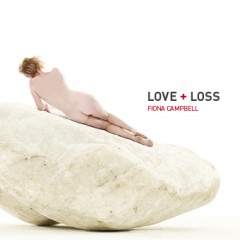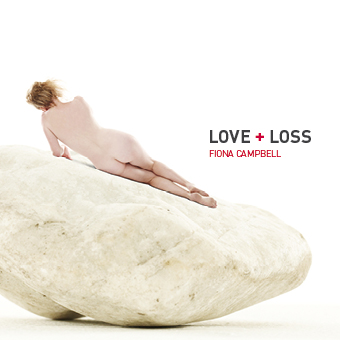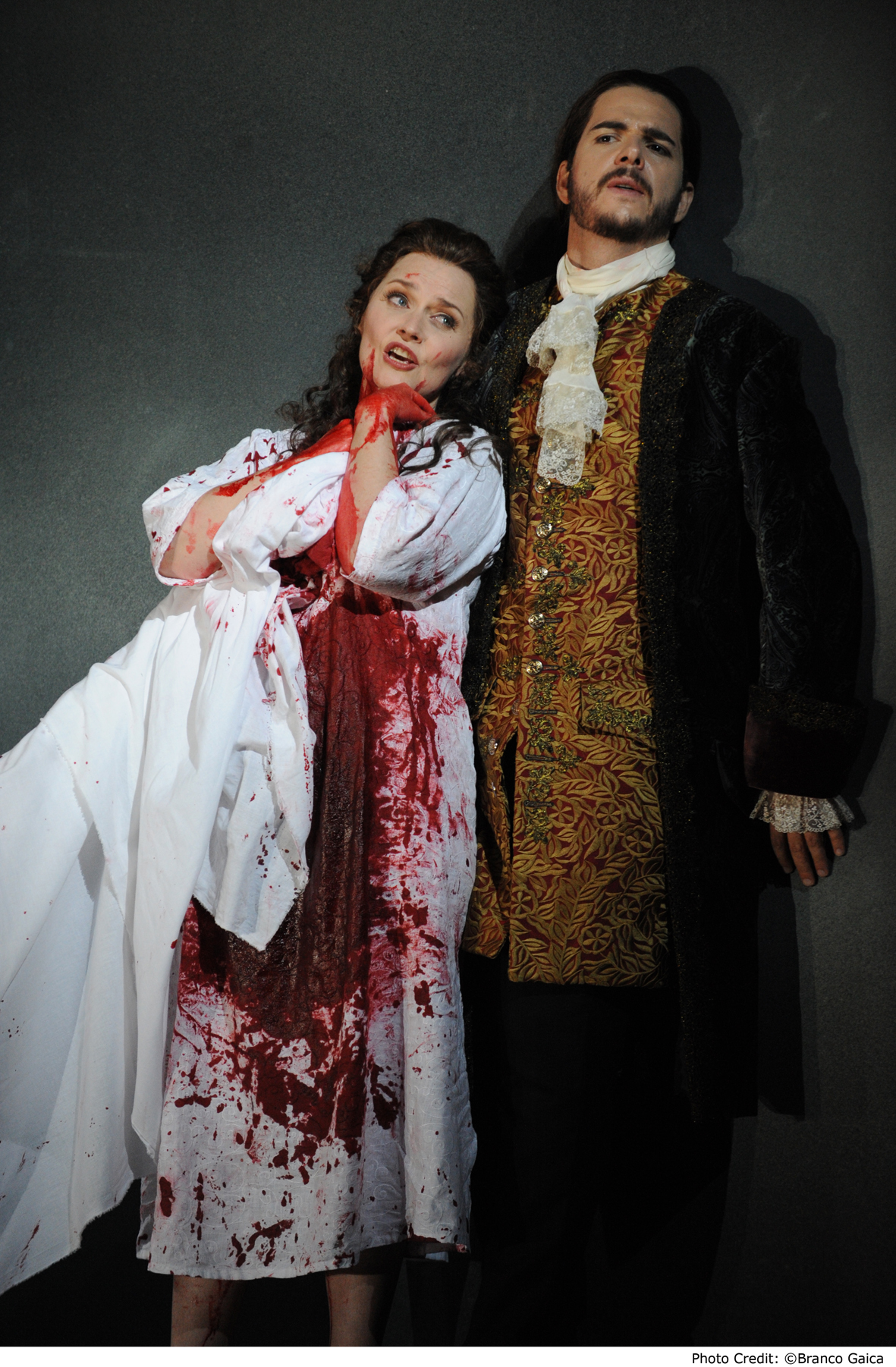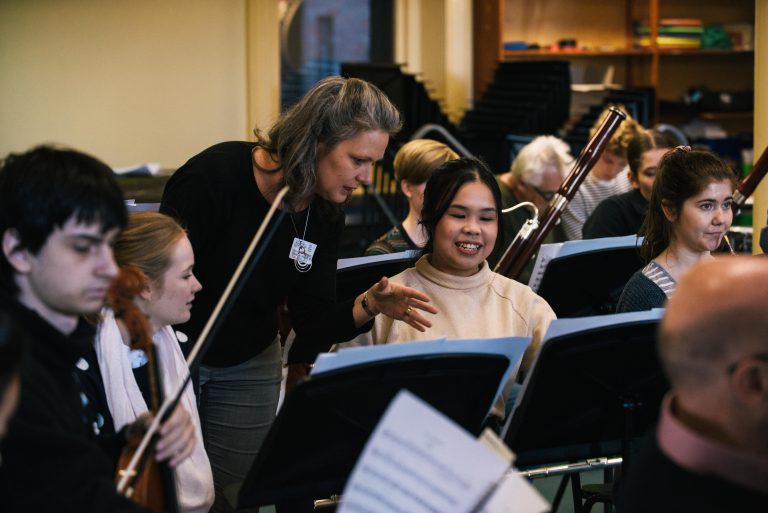Fiona Campbell: “Love + Loss”

” A CD that displays my music making abilities and music that is rare” is how mezzo-soprano Fiona Campbell describes her latest project, Love + Loss, a debut solo recording of three cantatas by Alessandro Scarlatti, Joseph Haydn and George Frideric Handel. It’s an achievement of which she is justifiably proud. Her performance earned high praise from The Australian: “The combination of Campbell’s smoothly rich, slightly dark-hued voice, her superlative phrasing and the fresh spontaneity of her ornamentation, makes for a compelling performance”.
On this CD, Fiona Campbell proves her versatility and deep understanding of her genre. She sings three substantial solo cantatas, is the recording producer, and has added her personal touch to the concept behind the collection by co-writing the programme notes and choosing to present herself in a classically nude pose on the cover. She is well known to Sydney audiences having appeared regularly with the Australian Brandenburg Orchestra (her Haunting Handel series won her the Limelight Best Solo Performer Award for 2011), Pinchgut Opera and the Sydney Philharmonia Choirs.
Whether your perspective is musical, artistic or acoustic, Fiona Campbell’s choices on this CD are adventurous, yet remain true to her craft and carry her intensely personal touch. It is this combination of talent, interpretation and a willingness to take risks that makes this CD unique. Accompanying her on the recording is a period ensemble of violins, cello, double bass, theorbo and guitar, directed from the harpsichord by Neal Peres Da Costa.
Talking to Fiona Campbell the performer, we revisited 2011 when she wore the pants for Haunting Handel, presenting counter-tenor repertoire by Handel with the Australian Brandenburg Orchestra. In Love+ Loss, she is decidedly female. Not strong and fulfilled, but suffering violence, abandonment and loneliness. Campbell says that the difference in interpreting a male role in comparison with a female role doesn’t require a vastly different mindset. ” I’m always working from the source of the character” she says.” The three women portrayed on the CD are very different from each other – Clori, Arianna and Lucretia. Understanding the text allows the characters to be portrayed without stereotyping them. These composers were masterful story tellers”.
So what does Fiona Campbell want this CD to say about her as a performer? “She muses: “I suppose so many people have numerous versions of the popular arias for mezzo-sopranos. I wanted this CD to sit somewhere else. Most people haven’t heard these cantatas before. They are very emotional and the opportunity for story telling is immense. The Handel is so raw and angry and passionate and beautiful, it showcases the ability to tell the story without the enhancement of costumes or sets, like in opera”. Telling the story in the relative sterility of a recording studio adds to the complexity. On a recording, Campbell is denied the use of facial expressions and gestures; there is no audience from whom to draw energy and whose responses she can observe. Even more, the intensity of the emotion and the nuances of the tale have to be conveyed by the voice alone. “For me” she says, “that meant capturing an emotion in a sound and in a colour”.
The three cantatas Fiona Campbell has compiled, represent three generations of composers from Alessandro Scarlatti (b 1660), through Handel (b 1685, the same year as A. Scarlatti’s son Domenico) and Haydn (b 1732), spanning styles that are bookended by the early baroque and the classical. “The instrumental writing amongst the three is very different. The Haydn has a completely different sound, all of its own with the presence of the fortepiano, the recitative accompanied by the fortepiano and no da capo sections. It has a bigger more lyrical feel. Haydn was meticulous in writing every single note and rest – everything is there for a purpose. I was able to take more liberties with the baroque repertoire and its ornamentation ” she commented.
For Fiona Campbell the recording producer, this is a first, with a level of challenge compounded by the requirement that she listen to herself critically, demanding a daunting level of introspection and honesty. There were practicalities too. ” The combination of logistics in putting it together was a challenge” she recollects. “The pressure is on every time the red light is switched on. There is no luxury of time. Thankfully, Neal (Peres Da Costa) is a very experienced recording artist. His calmness and objectivity in listening to the tracks were invaluable”.
Love + Loss carries Fiona Campbell’s personal imprimatur in what she reveals as co-writer of the insights into each cantata and her overview of the project in its entirety. The ultimate act of courage and baring of her soul perhaps lies in her decision to pose for the minimalist image on the cover of the CD. It is an image of sheer simplicity that is at once stark, yet soft; vulnerable but strong and without artifice. The woman who has loved and lost….everything. Yet, she reclines atop a rock, not crushed by it.
This is the music of a serious performer not afraid to tackle complex repertoire and able to stretch the focus to three substantial works in their entirety. “It’s what I can I do to contribute to the arts in Australia. In 5 years we may not have collections like this being made”.
Fiona Campbell was interviewed by Shamistha de Soysa
Love + Loss is recorded on Fiona Campbell’s own label catalogue number FC – 111 and is available at all ABC shops and on line. The cantatas featured are:
1. Alessandro Scarlatti: Bella madre de’fiori
2. Jospeh Haydn: Arianna a Naxos, Hob.XXVIb:2
3. George Frideric Handel: La Lucrezia, hwv 145
In Sydney you can hear Fiona Campbell perform in Mozart’s Requiem with the Sydney Symphony Orchestra conducted by David Zinman, on May 2nd, 4th and 5th at the Sydney Opera House. In August she returns to Sydney to perform in Beethoven’s Symphony No 9 with the Australian Chamber Orchestra.






